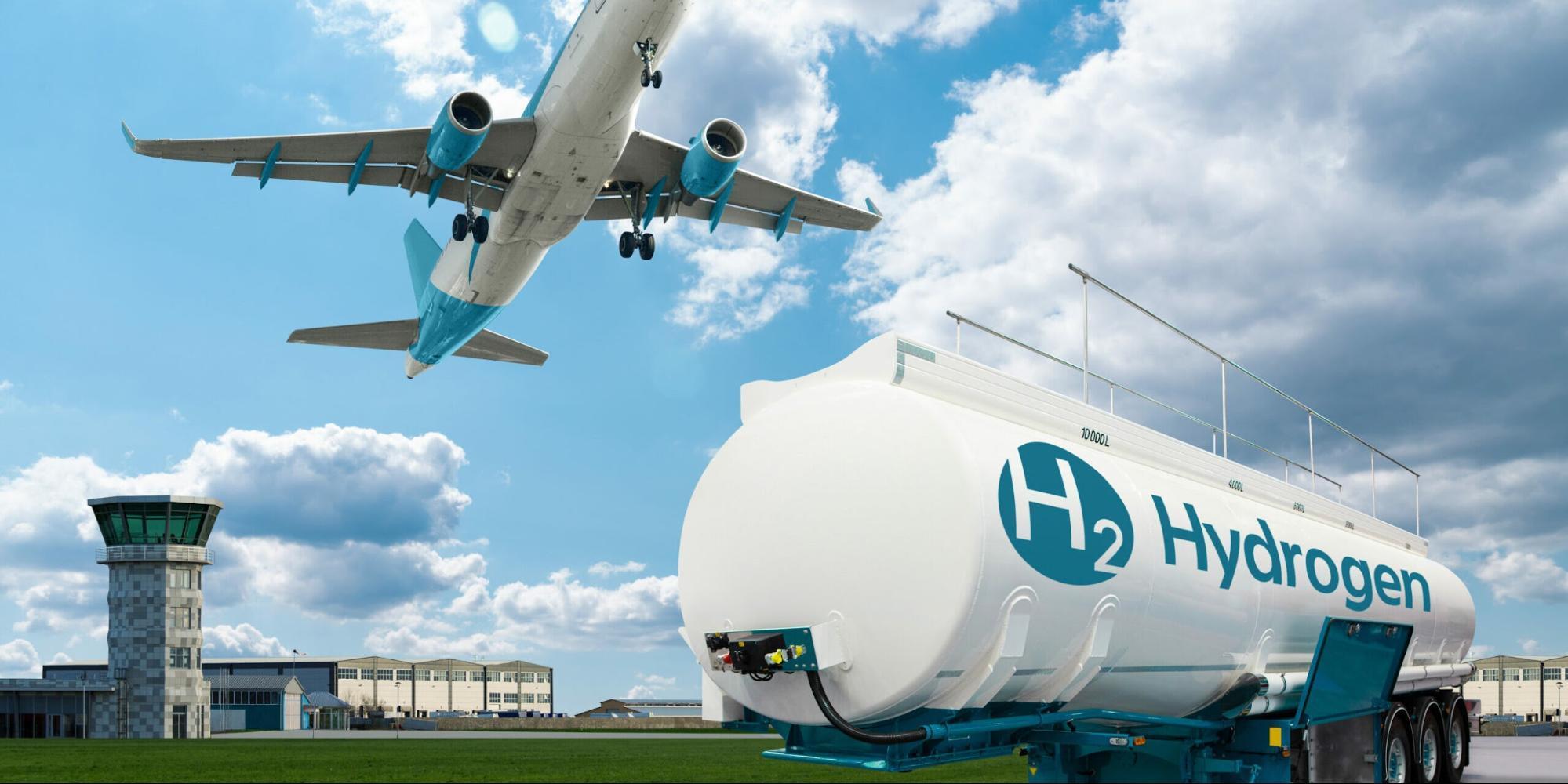
The aerospace industry is constantly exploring new ways to enhance the efficiency and environmental sustainability of air and space travel. One promising solution is hydrogen, which has numerous advantages as a fuel source for aircraft, satellites, and spaceships. In this article, we will discuss the role and benefits of hydrogen as a fuel source in the aviation industry, along with the challenges and perspectives of top professionals.
Advantages of Adopting Hydrogen as a Fuel Source
Hydrogen has several advantages as a fuel source for the aerospace industry. Firstly, its combustion only produces water vapor, making it an eco-friendly and sustainable energy source. It emits no harmful emissions, making it an ideal fuel for air and space travel. Additionally, hydrogen has a high energy density, meaning that it can store a large amount of energy in a limited space. This property is crucial for spacecraft and aircraft, which need to be light to fly.
The Usage of Hydrogen Fuel in Aerospace Industry
Reducing greenhouse gas emissions is crucial for the aviation industry. Kerosene currently contributes to 3.6% of the EU’s greenhouse gas emissions and releases dangerous carbon dioxide into the atmosphere. However, using green hydrogen as a substitute fuel source can help overcome this challenge.
Generating an electric current from a renewable source to split water into oxygen and hydrogen reduces emissions during the production of green hydrogen. NASA and other space organizations are studying green hydrogen as a fuel source for rocket engines, with its primary application being for propulsion systems. Hydrogen has a high specific impulse, which produces tremendous thrust for a given amount of fuel, making it an ideal fuel source for rocket engines.
The development of hydrogen-powered technologies for aircraft is being led by Europe and could potentially make air travel environmentally friendly, with no emissions or effect on climate change. By 2035, short-range aircraft could use this technology, which is achievable. Industry analysis shows that hydrogen technology is also cost-effective, with an additional cost of less than €18 per person on a short-range flight and a significant reduction in climate impact.
According to a recent analysis by the World Economic Forum and the University of Cambridge Aviation Impact Accelerator, hydrogen could be the key to making aviation more environmentally friendly. Long-distance flights could be powered by hydrogen combustion aircraft by 2035, as opposed to hydrogen fuel cells for mid-range flights.
Industry Perspective About the use of Hydrogen as a Fuel Source
Many industry professionals are optimistic about the potential of hydrogen as an aviation fuel source and see it as a possible solution to the industry’s net-zero ambitions. Government support is essential for infrastructure development, certification requirements, and technological advancements in the aerospace industry, according to Arnold Gad-Briggs, Director of EGB Engineering.
The debate about whether to fund hydrogen or battery technologies still needs to be resolved. Batteries may be a better option for short-haul flights, but hydrogen is more suitable for long-haul, high-payload flights. Combining battery and hydrogen technology, such as lithium metal cells and liquid hydrogen tanks, could double the range of hydrogen-powered aircraft.
One of the major companies investing in both battery and hydrogen systems is Airbus. Airbus has signed contracts for cooperation in constructing hydrogen infrastructure at airports worldwide. Additionally, Rolls-Royce Plc is pursuing a hydrogen aircraft program that aims to demonstrate through a series of rig and engine tests that hydrogen can be used effectively and safely as a power source for small to medium-sized aircraft. The company plans to move forward with a flying test phase in the long term by the middle of the 2030s.
Using Hydrogen as a Fuel Source Challenges and Future Prospects
One of the main obstacles to using hydrogen as a fuel source in the aerospace industry is developing secure and efficient storage and delivery systems. Currently, high-pressure gasses are used to pressurize hydrogen for storage, but this approach has limitations in terms of weight, space, and safety concerns. Alternative methods, such as cryogenic storage, are also being explored. Furthermore, the production of hydrogen itself requires energy and can emit greenhouse gasses, depending on the method used. Therefore, developing cost-effective and environmentally friendly methods for hydrogen production is crucial. Despite these challenges, the potential benefits of hydrogen as a fuel source for the aerospace industry are significant. It offers a high energy density, low emissions, and the ability to produce water as a byproduct. In the future, continued research and development will be necessary to overcome the technical challenges and make hydrogen a viable fuel option for the aerospace industry.
About EGB Engineering
EGB Engineering is a global engineering consulting firm specialising in sustainable energy solutions, power and propulsion systems. We work in the energy, aerospace, and nuclear industries, providing clients with sustainable and renewable engineering products and services.
Recent Articles
COP29’s Legacy: Decarbonising Buildings for a Sustainable Future
COP29, held in Baku, Azerbaijan, from 11–22 November 2024, reinforced the urgency of decarbonising the built environment as a cornerstone of global climate action. With buildings
EGB Engineering Sponsors Life-Changing Rams in Kenya 2024 Volunteer Trip
EGB Engineering Supports Rams in Kenya’s 2024 Efforts to Transform Lives in Nakuru’s Schools EGB Engineering is proud to have sponsored the 2024 Rams in Kenya trip, an annual i
Decarbonising through Waste: Why effective Waste Management matters
Aim of this Insight This review explores the current challenges and status of the UK’s waste management systems and how improved circularity can help the country achieve its 2050
Transforming African Infrastructure with Local Partnerships and Innovation
EGB Engineering has demonstrated significant expertise and strategic capabilities in delivering major infrastructure projects in Africa. This insight consolidates key takeaways fro
Sustainable Marine Engineering: Navigating Towards Net Zero
Marine engineering is a critical field that focuses on the design, development, operation, and maintenance of ships and other marine vessels. As the world is dealing with climate c
Meeting Standards in Nuclear Power Component Engineering
In the realm of nuclear power generation, adherence to stringent industry standards is important to ensure the safety, reliability, and efficiency of power plants. Component engine
EGB Engineering selected as ESPO Framework Partner
Introduction: Welcome to the official blog of EGB Engineering, a go-to resource for insights and updates on decarbonisation strategies and net-zero initiatives. Our consultancy ser
EGB Engineering have been chosen as a preferred supplier on ESPO Framework
EGB Engineering is pleased to have been chosen as a preferred supplier on the ESPO framework – Decarbonisation, Net Zero Strategies. The framework for consultancy services on
Promoting Reliability: Effective Asset Maintenance Strategies in Power Generation
Reliability in power generation is important for ensuring uninterrupted supply, meeting demand, and maintaining operational efficiency. Achieving high reliability requires implemen









